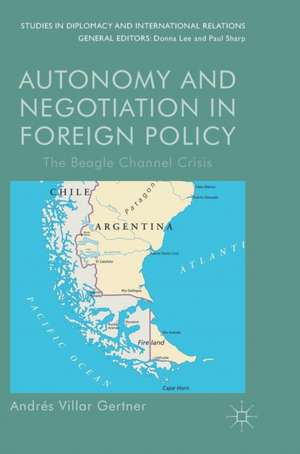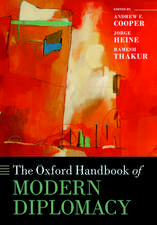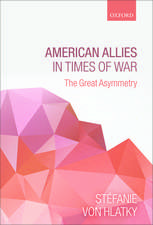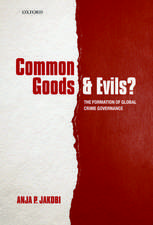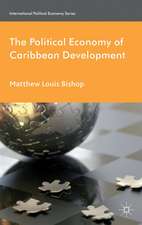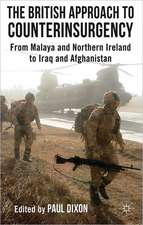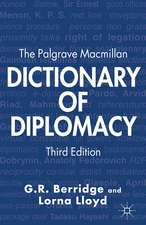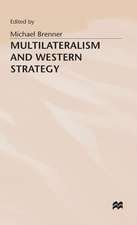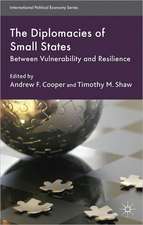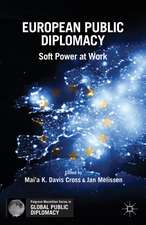Autonomy and Negotiation in Foreign Policy: The Beagle Channel Crisis: Studies in Diplomacy and International Relations
Autor Andrés Villar Gertneren Limba Engleză Hardback – 13 oct 2016
Din seria Studies in Diplomacy and International Relations
- 18%
 Preț: 942.76 lei
Preț: 942.76 lei -
 Preț: 383.33 lei
Preț: 383.33 lei - 15%
 Preț: 635.96 lei
Preț: 635.96 lei - 18%
 Preț: 777.50 lei
Preț: 777.50 lei - 18%
 Preț: 945.30 lei
Preț: 945.30 lei - 18%
 Preț: 725.13 lei
Preț: 725.13 lei - 15%
 Preț: 640.24 lei
Preț: 640.24 lei -
 Preț: 391.61 lei
Preț: 391.61 lei - 15%
 Preț: 643.65 lei
Preț: 643.65 lei -
 Preț: 387.96 lei
Preț: 387.96 lei - 18%
 Preț: 1002.75 lei
Preț: 1002.75 lei -
 Preț: 391.40 lei
Preț: 391.40 lei -
 Preț: 385.08 lei
Preț: 385.08 lei - 15%
 Preț: 642.83 lei
Preț: 642.83 lei - 18%
 Preț: 1239.49 lei
Preț: 1239.49 lei -
 Preț: 387.96 lei
Preț: 387.96 lei - 15%
 Preț: 640.06 lei
Preț: 640.06 lei - 15%
 Preț: 641.85 lei
Preț: 641.85 lei -
 Preț: 387.58 lei
Preț: 387.58 lei - 18%
 Preț: 1002.75 lei
Preț: 1002.75 lei -
 Preț: 392.60 lei
Preț: 392.60 lei - 15%
 Preț: 642.51 lei
Preț: 642.51 lei - 15%
 Preț: 635.29 lei
Preț: 635.29 lei - 15%
 Preț: 642.68 lei
Preț: 642.68 lei - 18%
 Preț: 1112.48 lei
Preț: 1112.48 lei -
 Preț: 386.39 lei
Preț: 386.39 lei -
 Preț: 388.72 lei
Preț: 388.72 lei - 18%
 Preț: 725.61 lei
Preț: 725.61 lei - 18%
 Preț: 891.96 lei
Preț: 891.96 lei - 18%
 Preț: 729.23 lei
Preț: 729.23 lei
Preț: 386.61 lei
Nou
Puncte Express: 580
Preț estimativ în valută:
73.99€ • 76.96$ • 61.08£
73.99€ • 76.96$ • 61.08£
Carte tipărită la comandă
Livrare economică 14-28 aprilie
Preluare comenzi: 021 569.72.76
Specificații
ISBN-13: 9781137572745
ISBN-10: 1137572744
Pagini: 202
Ilustrații: XV, 193 p. 3 illus., 1 illus. in color.
Dimensiuni: 148 x 210 x 17 mm
Greutate: 0.38 kg
Ediția:1st ed. 2016
Editura: Palgrave Macmillan UK
Colecția Palgrave Macmillan
Seria Studies in Diplomacy and International Relations
Locul publicării:London, United Kingdom
ISBN-10: 1137572744
Pagini: 202
Ilustrații: XV, 193 p. 3 illus., 1 illus. in color.
Dimensiuni: 148 x 210 x 17 mm
Greutate: 0.38 kg
Ediția:1st ed. 2016
Editura: Palgrave Macmillan UK
Colecția Palgrave Macmillan
Seria Studies in Diplomacy and International Relations
Locul publicării:London, United Kingdom
Cuprins
Introduction.- 1. FPDM: Agents, Structures and Status.- 2. Argentine-Chilean relations in historical perspective.- 3. Annus Horribilis: 1977-1978.- 4. Global actors: converging conflicts.- 5. Time for Mediation.- 6. The Final Act
Notă biografică
Andrés Villar Gertner holds a PhD in Politics and International Studies from the University of Cambridge, UK, where he is Research Associate at the Centre for Rising Powers. Prior to his doctoral studies, he was a political analyst in the Department of Planning at the Ministry of Foreign Affairs of Chile from 2007-09.
Textul de pe ultima copertă
This book provides a unique view on the Beagle Channel crisis (1977-1984) between Argentina and Chile by examining it in a global political context. The author explores the factors which led from imminent conflict to signing the Treaty of Peace and Friendship in just six years. Regional and international dimensions of the Beagle crisis are given particular attention, including international arbitration, the participation of the Vatican as a third actor, the role of the US, the complicating effects of the Falkland war, and the relations between each party and the UK. The author highlights unequal effects on Argentine and Chilean foreign policies of domestic structures and international conditions. The book seeks to determine the extent to which foreign policy provides opportunities for states to exercise political autonomy, given the powerful constraints imposed by the multiple structures of the international system, and how negotiation behaviour generated the path from conflict to cooperation between Argentina and Chile. The author’s focus on foreign policy aids the understanding of processes and decisions within Argentina and Chile during the Beagle crisis while utilising new theoretical approaches in the field of negotiation behaviour in Latin America.
Andrés Villar Gertner holds a PhD in Politics and International Studies from the University of Cambridge, UK, where he is Research Associate at the Centre for Rising Powers. Prior to his doctoral studies, he was a political analyst in the Department of Planning at the Ministry of Foreign Affairs of Chile from 2007-09.
Andrés Villar Gertner holds a PhD in Politics and International Studies from the University of Cambridge, UK, where he is Research Associate at the Centre for Rising Powers. Prior to his doctoral studies, he was a political analyst in the Department of Planning at the Ministry of Foreign Affairs of Chile from 2007-09.
Caracteristici
Offers a unique view on the Beagle Channel crisis (1977-1984) between Argentina and Chile by examining it in a global political context Examines the role of international arbitration in the resolution of the Beagle Channel crisis Uses new theoretical approaches in the field of negotiation behaviour in Latin America
